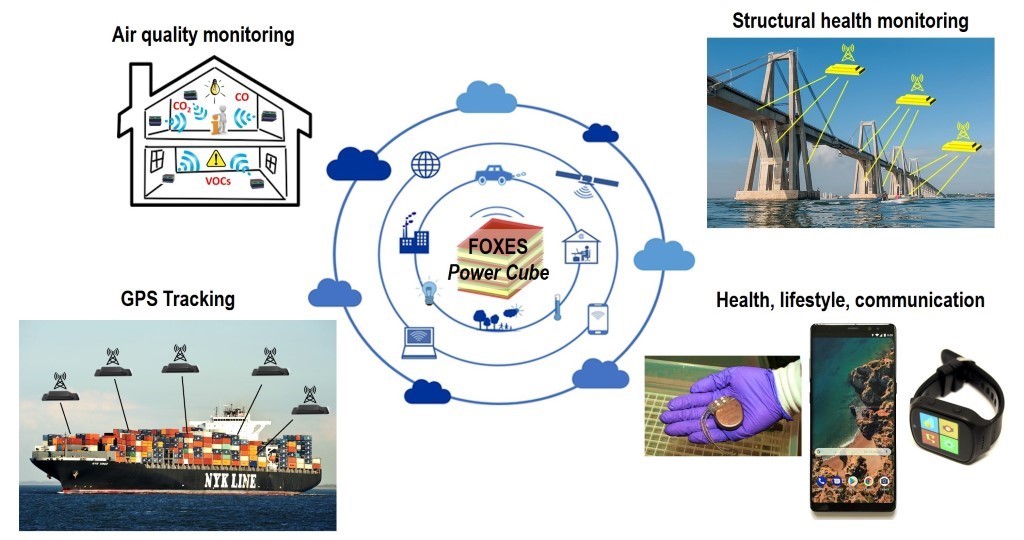
FOXES project to develop a zero-emission energy supply system
The Internet of Things (IoT) is a network of intercommunicating electronic devices. It is the core technology of future-defining concepts like autonomous driving and Industry 4.0. IoT devices often need to be used remotely, without grid connection. The current solution is to rely on batteries, with or without energy-harvesting sources (i.e. a photovoltaic cell). But batteries have a limited lifetime – often shorter than the device itself – and a significant environmental footprint.
This project, which counts on the participation of researchers from the University of Barcelona and the management of the Bosch i Gimpera Foundation, aims to create a zero-emission energy supply system for powering wireless devices for the Internet of Things. The budget for this project is about four million euros. Once the project is finished, the system will be tested to power a net of wireless air-quality sensors in the urban area of Barcelona.
“We chose Barcelona to use the power cube, because it is one of the European cities with the highest NO2 and O3 pollution”, says J. Daniel Prades from the Institute of Nanoscience and Nanotechnology of the Universitat de Barcelona (IN2UB). “FOXES demonstrators will allow an unprecedented level of spatial resolution in monitoring emissions, facilitating the identification of problematic spots and the implementation of effective countermeasures. We will demonstrate the potential of FOXES technology for improving the well-being of citizens in urban communities”, adds Prades.
The developed technology in FOXES targets all mobile platforms that need to power an electronic and sensor interface – in the transport sector, in industrial settings, and in emergency situations.
Participating partners in the project are the University of Barcelona, University of Wuppertal (Germany), AMO GmbH (Germany), and Uninova – Institute for the Development of New Technologies (Portugal), under the coordination of the Materials Center Leoben Forschung GmbH. Funded by the Horizon 2020 FET Proactive Programme, the project builds on groundbreaking preliminary results of the project partners in different areas of material science, chemistry, technological processes and electronics, and aims at establishing a new technological paradigm.

